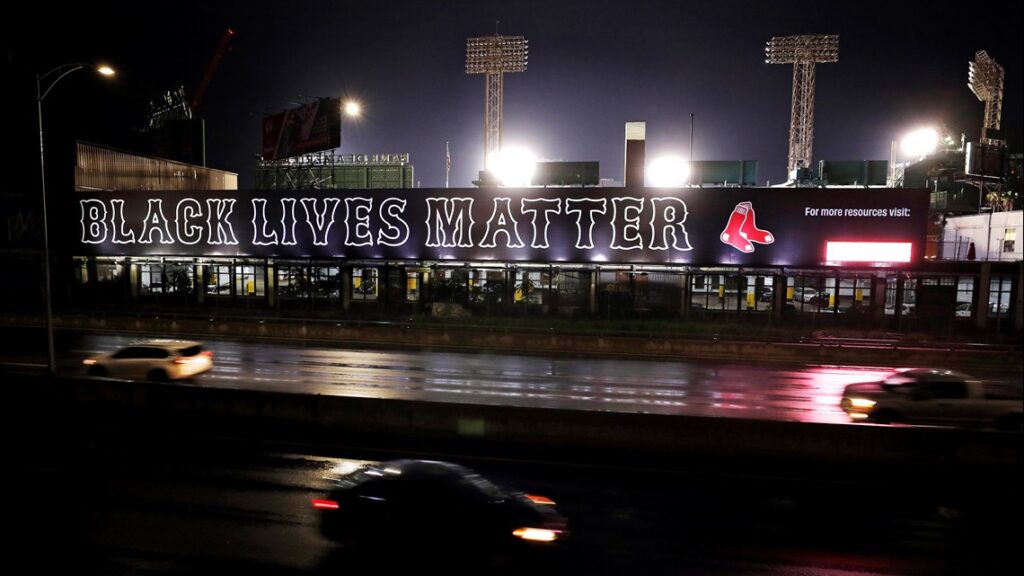Last Thursday, the Boston Red Sox revealed a Black Lives Matter mural on the side of Fenway Park in support of the social movement.
The same night, every player on the New York Yankees, Washington Nationals, San Francisco Giants and Los Angeles Dodgers knelt before their opening games and held a long, black ribbon in protest of racial injustice. Mookie Betts, a star player on the Dodgers, also knelt during the national anthem.
This led to an influx of baseball fans boycotting their own teams. Some claimed that politics did not belong in sports and that players were giving in to social media pressure.
Good bye dodgers, I enjoyed watching but not anymore since you put playing the game second stage. Stand instead, and wave our nations flag since that’s who has given you the freedom to play a sport for a living.
— Marc77 (@77Marclopez) July 24, 2020
The game is ruined now, what a disrespectful gesture to all those who have fought and died to secure his “right” to protest. Shameful
— Sir Real (@railfan4christ) July 24, 2020
This is a big mistake. I thought the Red knew who makes up Red Sox Nation. Apparently they don’t. Keep social statements out of the game.
— Mike Netkovick (@mikenetkovick) July 23, 2020
Several other fans were proud to see their teams openly support Black Lives Matter and the fight for racial equality.
Omg, that made me cry…thinking of what Kaepernick had to go through. But tonight he won. Thank you MLB. Let’s play ball! ⚾️
— LMS (@LMS68_44) July 23, 2020
Way to Go Players on Both Teams. Don’t listen to the haters. They are only upset because you’re “standing” against their own hate. pic.twitter.com/5qaJbLiVUx
— Mr. Mike C (@MikeCtheMC) July 24, 2020
Well, you guys have done what I thought was impossible: Gotten me to like one of your tweets. Kudos from a die hard Yankees fan. pic.twitter.com/IrD5QRTnaW
— B-Dilly (@Titan4Ever2488) July 23, 2020
The discussion about the best ways to protest as an athlete have gone on for several years. Earlier this year, Colorado Rockies player Ian Desmond opted out of the 2020 MLB season and used his announcement as an opportunity to shed light on the league’s shortcomings around racial issues.
Among the things Desmond criticized in his statement was “locker room” culture, which gave a pass to racist behaviors among teammates that wouldn’t fly in public. This could involve racial slurs, insensitive racial jokes, sexist rhetoric, and generally inappropriate behavior behind closed doors.
Baseball has historically been a white-dominated sport. Jackie Robinson famously broke the color line in 1947 when he started for the Brooklyn Dodgers; still, only about 8 percent of players in the league today are Black, and even less make up the managerial staff.
A more complex racial issue in baseball revolves around the game’s “unwritten” rules that discourage showmanship, pride and passion during a game. The game’s implied codes of conduct have often been weaponized to ridicule Black and brown players for supposedly disrespecting the game.
In 2017, a group of fans infamously displayed a large banner during a Red Sox game that read, “Racism is as American as Baseball.” Perhaps the MLB is starting to realize that they don’t wish to be a part of that narrative any longer.






